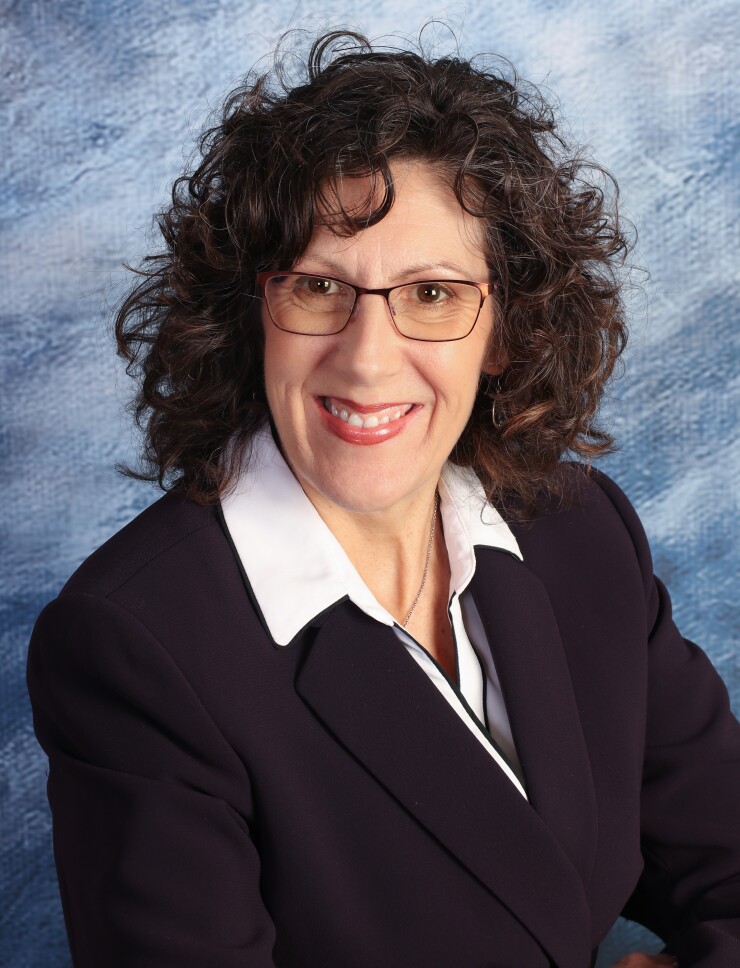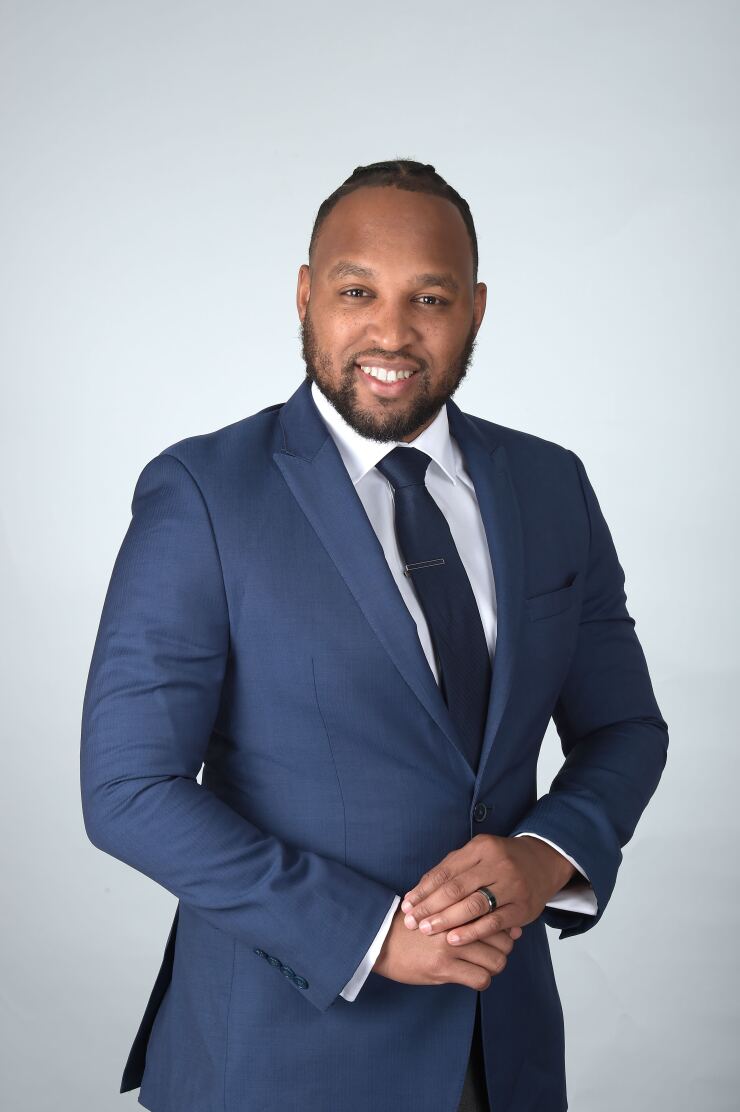When certified financial planner and enrolled agent Amy Irvine launched her registered investment advisory firm eight years ago, she "included taxes right from the get-go," she said.
Irvine and other dual professionals have been serving clients in the related, but separate, fields in a way that's

"For years I had been working with clients on the tax analysis side and struggled to get all the information needed to do a thorough job," Irvine, the founder of Corning, New York-based
READ MORE:
Most advisors see value in tax-related work
Many advisors express interest in adding
In an
Those advisors are missing out on a big boost to clients' portfolios and their businesses, according to the firms with their feet in the two fields.
Advisors who are "able to put together a much more comprehensive financial plan that includes all of the implications" can "deliver more of that value back to the client," Mackay said. "You're seeing much more opportunity to serve clients holistically."
Wealth management professionals with tax expertise may have started on either side of the equation first, and they share a variety of complementary characteristics between them. Jerel Butler, a financial planner with Philadelphia-based

"He stressed the importance of understanding taxes and how tax preparation can lead to greater value for clients and new financial planning opportunities," Butler said in an email. "Since my firm was in startup mode, I decided to learn how to prepare taxes, and that turned out to be a great feeder for financial planning and wealth management, especially if you can show clients how they can proactively save on taxes along the way."
Rupa Pereira, the principal of Apex, North Carolina-based
"A tax accountant is not very forward looking when preparing taxes, missing out on many planning considerations," Pereira said. "Student loans, backdoor Roth [individual retirement accounts], education credits, [qualified business income] and tax-loss harvesting are few of the planning areas that are beyond [the]scope of a typical tax preparer, so it bodes well for a wealth management firm to include these services so they can integrate the overall picture for an optimal tax outcome."
The adaptation of tax planning "happened naturally as clients needed advice on complex situations such as selling a business, managing concentrated stock positions or using net unrealized appreciation in a 401(k) rollover," said Valerie Escobar, a senior wealth advisor with Overland Park, Kansas-based
"RIA's need to stay competitive by increasing the level of service, not by offering cheaper pricing," she said. "Tax is a natural part of the wealth management conversation, so being able to fully dive into the topic creates a stickier relationship.

"Note that there is a distinction between tax strategy and tax preparation," Escobar added. "Basic tax strategy, like estate planning or insurance analysis, for example, should be core competencies for a truly full-service RIA. Tax preparation for basic returns is not necessarily feasible at the fee an RIA needs to charge for the level of expertise we are delivering. For that service, I see value in partnering with a tax preparation firm that has a model built for preparing basic returns."
On the other hand, many CPAs are hesitant to move into wealth because "a lot of them are so overworked they just don't have any time to learn what goes on in the investment world," according to Victoria Serles, a team lead and wealth manager with Bellevue, Washington-based
"If you want to practice on both sides, then you've got to be very committed," Serles said. "You can't be good at one and kind of dragging your foot on the other."
READ MORE:
Referring tax compliance to outside firms
Wealth management's traditional way of
That setup ensures there are some "checks and balances" on an advisor's work from an independent tax professional — although the relationships work best when each party views it as a team rather than "doing it in a disjointed way," according to Liting Chuang, the director of tax planning for Menlo Park, California-based

"It's always in the best interest of the client when we work collaboratively," Chuang said.
The firms that use referrals can do so at a major scale. Minneapolis-based Choreo
In
"When we do an engagement with clients, we want to put together a multidisciplinary advisory team," Morrill said. "Clients don't know to ask what they don't know to ask. We're able to drive these conversations into much better, more productive places."
Disagreements may arise between advisors and outside CPAs, though, about ideas like a Roth conversion or realizing capital gains, according to Escobar. Those tactics could appeal to planners with the long-term view in mind, but CPAs often balk at the current tax liability stemming from them, she noted.
"Advisors and CPAs need to work as a team and not against each other," Escobar said. "As advisors, we can create a strategy, but it's important that we let the CPA have the final word in tax — they are the certified professional. The best solutions are found through brainstorming with CPA's as we each look at the situation through our own lens."
READ MORE:
Hybrid approaches
Other firms have found a structure that's somewhere in between using outside firms and doing taxes in-house or deploying both strategies at once.
Serles had once overseen the Private Client Wealth Management Division of BDO in the U.S., co-founding a wealth management firm called Seidman Capital Group and an accounting and consulting firm named Hersman Serles Almond. Coldstream had referred its wealth clients' tax questions to the CPA firm for years before
Now Coldstream's clients can get a "spectacular service level that's hard to replicate" while Hersman Serles Almond continues operating under the same name and getting other referrals from additional outside firms that were previously in its network as well, Serles said. Initially, she thought Coldstream was kidding about the idea of a merger before she warmed to it, she said.
"We're at the point of our careers where we could afford to take a little bit of that gamble," Serles said. "We could see the advantages, especially for the client."
New York-based
The advisory practice had been "working with some very smart accountants" since it "started to really systematically design a formal tax planning process" roughly a decade ago, he said in an interview. The problem emerged when he realized the difficulty of "having to compile all this information" that required inputs from multiple documents at different stages with a need for senior-level experts to "carry the ball to the finish line," Altfest said. Many advisors have faced a similar challenge
"I found that there was a strong demand for this and that other people were also having the same issue in terms of wanting to do more," Altfest said. "Typically planning like this has been considered a loss leader and something that can't be scaled."
While he declined to go into any details about the number of firms using FP Alpha currently, he said the company's base ranges from small firms "to huge enterprises that are household names."
In dual practitioner circles, Herb D. Vest, the founder and namesake of Avantax's predecessor firm, represents a household name for many CFP-CPAs. In the 1980s, Vest built a movement among accountants that played a role in convincing the American Institute of Certified Public Accountants
"It really begins at identifying the needs of the client," Mackay said. "That's when you get truly comprehensive, tax-intelligent financial planning is when you're looking at it through the entire lifecycle and journey of a client. And that's really what Avantax advisors do best."
READ MORE:
Dual practitioners
The simplest arrangement entails a financial professional with the qualifications — and drive — to do wealth and taxes out of the same office.
Jack Oujo, the founder of Wall, New Jersey-based
Doing wealth and taxes out of the same office is "a home run," Oujo said in an interview.
"If you're dealing with wealthy people and you have tax knowledge and investment knowledge, you're golden with those people," he said. "The public loves having a CPA who can handle their taxes and wealth management needs all in the same place."
The wealth management firms increasingly adding tax services in some form are simply following cues from their clients, according to Butler of Zenith.
"Tax services offer a way to convey knowledge and value in a quantifiable way to clients," he said. "Proactive tax planning can relay to clients strategies that they can implement ahead of time, and the actual tax preparation is just the execution of those strategies. Clients really appreciate seeing the savings that can occur because of proactive tax planning."
Another factor driving the wealth management industry's attraction to tax services stems from the fact that "it is becoming
"One of the main reasons I did it was because I get a lot of detail from a tax return — it's the center point to which data flows, and the more detail I see, the more questions I can ask and better planning I can do," Irvine said. "I will admit it becomes a challenge when you add tax services. You basically have two months [packed in] from about mid-February to mid-March to get the returns done. You have to set up the practice to prepare for that (we calendar block for this); but, because we have all the data, it makes our tax analysis, projections and overall planning a bit stronger in our practices."
Dual practitioners' clients just get a different angle on wealth management than other customers, according to Pereira of FWJ Planning.
"Having both tax-planning and tax-preparation expertise through a single touchpoint ultimately enhances the client experience since the service offered has more depth and covers a wider range in their overall financial picture," she said.
READ MORE:
The outlook
Some barriers that keep professionals on either side of the equation in their separate fields remain in place.
For Coldstream's Serles, the disparate educational tracks in the two professions creates many of the silos. CPAs, life insurance agents and investment advisors must each take their own distinctive ethics courses, she noted.
"To carry the load of full certification and education every year is pretty daunting," Serles said. "A lot of it, if it was blended together, would benefit both sides."
To Altfest of FP Alpha and Altfest Personal Wealth, the main obstacle comes from there not being enough hours in the day, he said. Technology carries the potential to help advisors who are "managing lots of client relationships" convert the laborious data entry and analysis of tax services "into actual planning and advice opportunities," Altfest said.
"Advisors are very busy," he said. "I strongly believe that the future of our economy is being able to use technology that will be a genius assistant to all of us."
Oujo counts himself "shocked" that much of the industry has taken this long to come to the tax side of financial services.
"It's been 30 years, and they still don't get it. I've been able to enjoy this wonderful career with very little to no competition," he said. "I think they missed out on an amazing opportunity and they might be catching up now."






